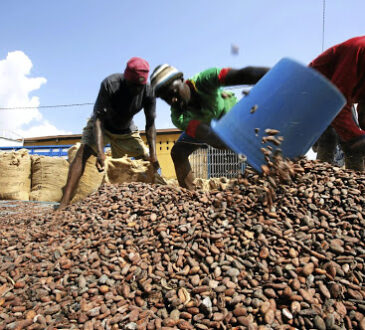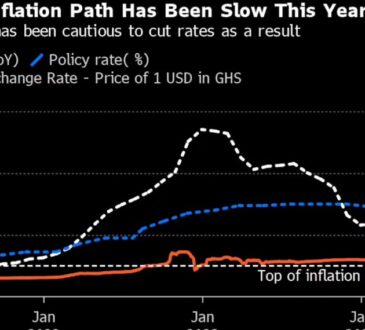New report highlights leading role of cities in Africa’s regional economic integration

A new report by the United Nations Economic Commission for Africa (ECA) highlights the leading role of cities in unlocking economic gains made available through regional economic integration, particularly under the African Continental Free Trade Area (AfCFTA) agreement.
Launched yesterday, the report is the first piece of comprehensive research to assess the linkages between Africa’s rapid urban transition and regional trade integration. It seeks to answer several critical questions, including how African cities can benefit from AfCFTA, what strategic investments are needed for cities to drive accelerated regional trade integration and how AfCFTA may transform cities and spatial development across the continent.
In response to these questions, the report provides concrete steps for an increased policy focus on investment in Africa’s cities to realise the full economic potential from AfCFTA, thereby boosting economic growth, reducing poverty and fostering inclusion.
Key findings
According to the report, regional trade integration has the potential to raise living standards by connecting cities to new markets, thereby enhancing access to a wider and cheaper variety of goods and services. The spatial effects of regional trade can transform Africa’s urban corridors, also contributing to the rise of small and intermediary cities and regional hubs, and better urban-rural connectivity.
The report also reveals that urban consumption can transform Africa if the demand is met through intra-regional production and trade. It notes that cities need increased policy attention and investment to unlock their full potential hubs for regionally traded goods and services, whilst stressing that better connectivity among cities is necessary to develop regional value chains under AfCFTA.
In her remarks at the launch event, which was attended by representatives from national and local governments, UN agencies, academic institutions, trade organizations, advocacy groups and intergovernmental bodies, Ms. Edlam Yemeru, acting Director of ECA’s Gender Poverty and Social Policy Division, said Africa’s regional trade integration is happening in a context of rapid urban transition.
She added: “The way in which cities are planned and managed will impact regional trade integration. Similarly, regional trade integration will lead to the growth of existing and new cities, while impacting the well-being of urban dwellers. It is thus critical to integrate an urban lens into national and regional strategies for AfCFTA to leverage emerging opportunities.”
Opening the event, Ms. Mama Keita, Director of ECA’s Sub-regional Office for East Africa, stressed that urbanization and regional economic integration, are drivers of Africa’s economic growth and transformation on their own. However, combining them together in policies and investments, she added, can lead to a greater impact than the sum of the separate parts.
In his opening remarks, Mr. Ishaku Maitumbi, Senior Technical Adviser at UN-Habitat, noted that the report makes a “vital contribution” to the important phenomenon of urbanization and regional trade integration in Africa.
He said the report makes it evident that Africa’s economic transformation can be achieved when we focus on urban consumption, regional trade and spatial planning.
Key recommendations
To take full advantage of Africa’s rapid urban transition and regional economic integration, the report puts forward four key proposals that countries could adopt to unlock the untapped opportunities presented by AfCFTA.
First, governments should implement trade policies with cities in mind, especially when designing and implementing their national AfCFTA strategies. Second, investments should be made in cities according to their role in regional trade, making sure small, mid-sized and large cities reach their full economic potential.
Third, the governments should ensure cities are prepared to take full advantage of emerging trade opportunities. Finally, the report urges solid decision-making on trade policy using spatially and gender-disaggregated data.
The event also featured a panel discussion where Professor Ivan Turok (Research Fellow, Inclusive Economic Development Research Programme, Human Sciences Research Council, South Africa) posited that AfCFTA will likely create winners and losers, hence complementary investments will be needed in urban areas.
In addition, Ms. Astrid Haas (Urban Economist) focused on the enormous financing gaps that exist, predominantly with regards to infrastructure in Africa’s secondary and intermediary cities that should be addressed for the benefits of enhanced trade to be realized.
Contributing to the discussion, AfCFTA Secretariat’s Chief Technical Advisor, Mr. PrudenceSebahizi highlighted the economic power of cities, particularly in terms of their production and consumption capacity, as well as their investment and business opportunities.
Along the same lines, from a member State’s perspective, Dr. Konyango Charles Otieno (National Director Urban Development, State Department for Housing and Urban Development, Kenya), emphasized the role of planning in anticipating increased levels of trade and stressed the need to “re-engineer” the African urban paradigm, moving away from cities that are dysfunctional and underinvested and towards cities that are better connected and better managed through strong institutions.
Panellists further discussed a range of opportunities that could be tapped to support productive urbanization and inclusive regional trade integration in Africa, including ways to strengthen the productive capacities of urban areas, digital connectivity, financing readiness of cities, the role of remittance, cross-border payments and the evidence on the different impact trade will have on cities.







